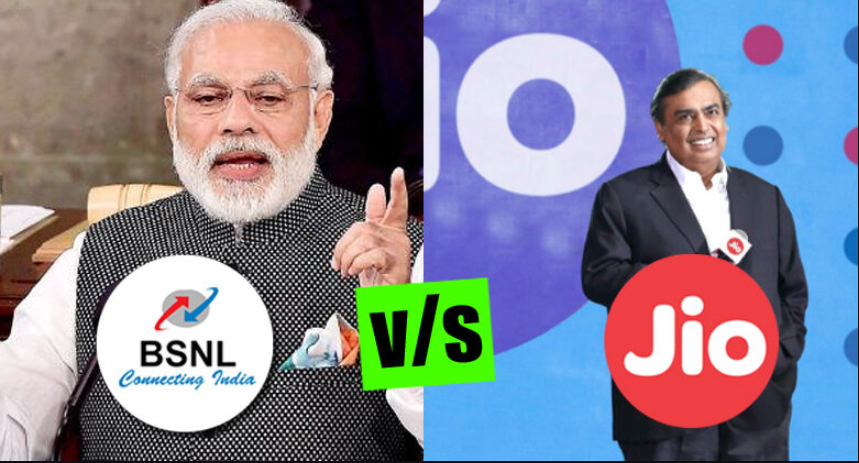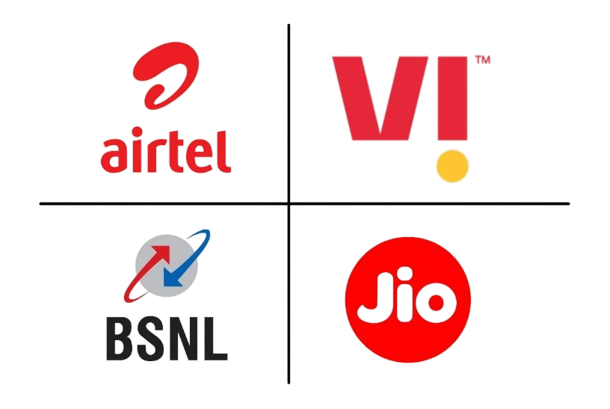The Modi-Ambani and BSNL’s Revival: A Political and Economic Shift

The Modi-Ambani and BSNL's Revival: A Political and Economic Shift
Modi government has announced significant discussion, particularly regarding the unexpected revival package allocated to Bharat Sanchar Nigam Limited (BSNL). Amidst a broader focus on employment and agriculture, the ₹33,000 crore infusion for BSNL has surprised many. This decision is particularly noteworthy given the historically close ties between Prime Minister Narendra Modi and Mukesh Ambani, chairman of Reliance Industries and owner of telecom giant Jio. This move may signal a strategic recalibration of the relationship between the government and Ambani’s business interests.
BSNL’s Comeback: A Surprising Turn
The significant budget allocation for BSNL marks a notable shift in the Indian telecom landscape. Once a major player in the industry, BSNL has struggled in recent years, especially with the rise of Jio, which disrupted the market with aggressive pricing and innovative services. The revival package aims to upgrade BSNL’s infrastructure and services, potentially positioning it as a viable competitor to private telecom giants. This decision comes in response to growing concerns over monopolistic practices, such as sudden tariff hikes by Jio and other private players, which have drawn criticism from consumers and policymakers alike.

Modi and Ambani: A Complex Relationship
The relationship between Prime Minister Modi and Mukesh Ambani has long been a subject of scrutiny, with allegations of favoritism towards Jio. Critics, including political opponents, have accused Modi’s government of tailoring policies to benefit Ambani’s businesses. However, the recent budget decision could indicate a shift in this dynamic. The substantial support for BSNL suggests a move to counterbalance Jio’s market dominance, ensuring a more competitive and fair telecom environment.

This development follows a period of intense speculation about the Modi-Ambani relationship. Notably, Ambani’s recent family events, such as his son’s wedding, included a host of opposition leaders like Lalu Prasad Yadav, Akhilesh Yadav, and Uddhav Thackeray. This diverse guest list may have conveyed that Ambani is not exclusively aligned with the ruling party. This perception could have influenced Modi’s decision to support BSNL, highlighting the need for a public sector player in the market to provide checks and balances against private monopolies.
Impact on the Telecom Market
The government’s backing of BSNL has significant implications for the Indian telecom market. Increased competition could benefit consumers by offering more choices and potentially lowering prices. The revival of BSNL ensures that the government retains a foothold in the telecom sector, preventing any single private entity from gaining excessive control. This move also addresses criticism from the Lok Sabha elections, where allegations of crony capitalism involving Ambani’s companies were prevalent.
The immediate market response has been telling. Jio’s decision to reintroduce affordable plans, such as the ₹49 plan, appears to be a direct reaction to the government’s support for BSNL. This indicates that private players are already adjusting their strategies in anticipation of increased competition from the revitalized state-owned company.
A New Era for Indian Telecom
The Modi government’s decision to allocate substantial funds for BSNL’s revival marks a pivotal moment in the Indian telecom sector. It not only suggests a potential rethinking of the Modi-Ambani relationship but also signals a commitment to maintaining a balanced and competitive market. As BSNL works to improve its services and infrastructure, consumers can look forward to a more dynamic telecom landscape with increased options and potentially more affordable services.
This development underscores the importance of a diverse telecom market, ensuring that no single entity can dominate to the detriment of consumers. As the situation evolves, the interplay between political decisions and business strategies will continue to shape India’s telecom sector.




